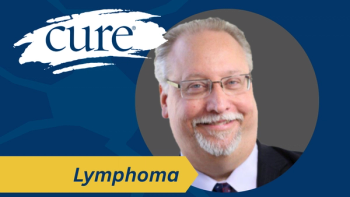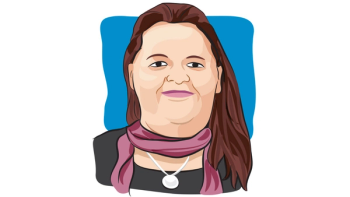
Multidisciplinary Management of Follicular Lymphoma
Transcript:
Jennifer L. Garson, PA-C: We’ve talked a lot about Gerry’s story and how he’s been treated and more about the hematologic side of this. And one of the things we always work with is our multidisciplinary team. So with Gerry, for instance, just in patients who have relapsed or refractory disease, it’s always important not just to get another tissue sample but to sit with a group of experts essentially. And at Rush [University Medical Center] we have a lymphoma comprehensive clinic, and it’s where Dr. [Parameswaran] Venugopal, some of our other hematology attendings, as well as our advanced practice providers — our radiation oncologists, our pathologists, our radiologists — can all sit down and have a discussion about where a patient has been as far as diagnosis, where they are at the current time and what our plan is to get them to the next best treatment or remission event.
So it involves not just hematology. We look at all the other areas to help us make decisions. And then sometimes, just like with Gerry’s case, we have to bring in some experts from outside of hematology. For instance, when Gerry was on idelalisib and his liver enzymes went up so much, we brought him into the hospital. We had our liver experts come in and give us their opinion on the best way to treat him at that point. So it’s not always just about hematology. It’s involving kind of every other discipline and getting our patients the best care that we can.
One of the other conversations that Gerry and I have had over the past couple of months is we had a CT [computed tomography] scan that showed some pulmonary nodules after he had an infection. And from our standpoint we said, “Well, you’re just getting over an infection, so let’s repeat a scan. But if these nodules become more numerous or are getting bigger, let’s get our pulmonary team involved. Let’s get the experts on the chest in here and take a look at these lungs and see what else we need to do to make sure that he’s getting the best care.”
It’s not always just about the one discipline. You sometimes have to involve some other areas. And that extends into our nutrition department. Sometimes it can be our social workers, our psychologists, just to coordinate all the care that these patients need, especially as they are treated more and more frequently and for longer periods of time.
We talk a lot about the multidisciplinary approach on our end of it. But from your end, there’s a lot that goes into making sure that you’re doing well, and it’s not just you as an individual. It seems that you’ve got a pretty good support network that’s helping you through this.
Gerald Koch: I do. I’ve got my wife, Kelly, who goes to most of my treatments with me, sits there with me during the infusions, gets me something to eat, makes sure I have something to read and gets me whatever I need. So that’s been great. My family at home, they kind of — you know, when I get my infusion, I come home, and a lot of times I’m tired. I work midnights, so a lot of times I work the night before, and then I’ve got to be there early in the morning, and I get my treatment. So the kids kind of know to give me some space. But the support I get at the hospital is great. The doctors, the nurses, everyone I encounter there are genuinely concerned for my well-being, and it shows through the work that they do.
Transcript Edited for Clarity




